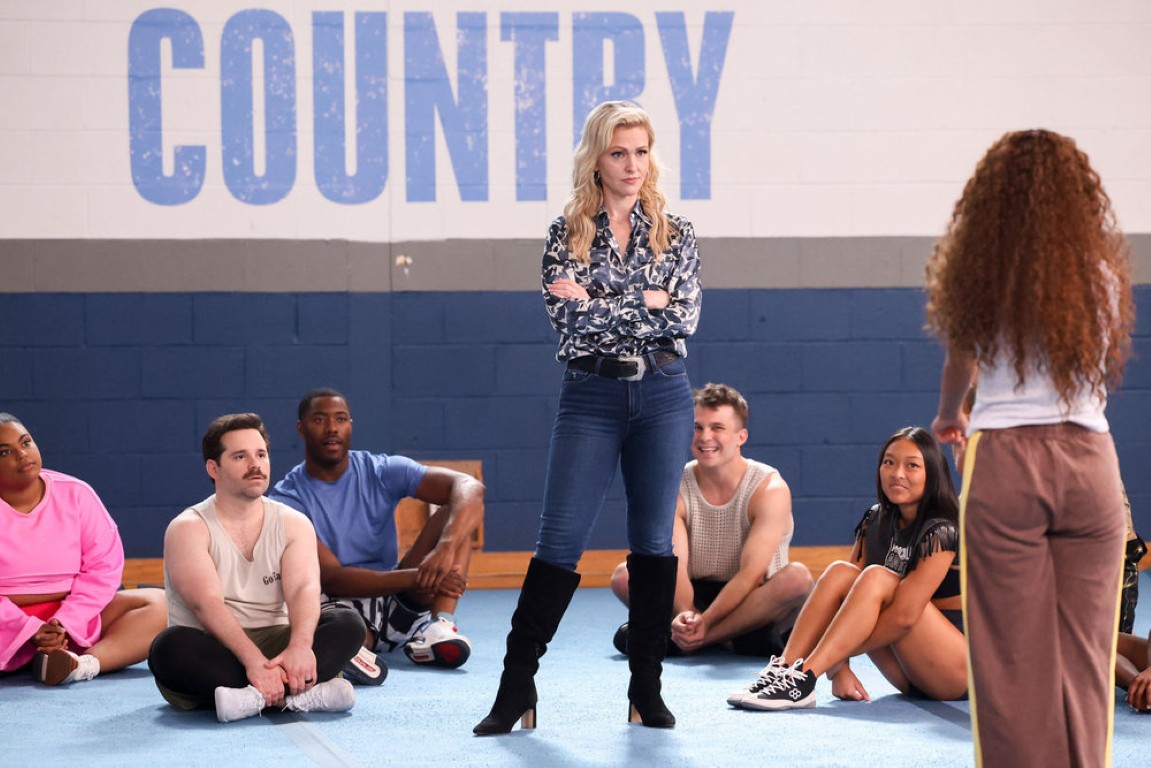
"Yes, the faux documentary format is overdone, and where "Stumble" hits wrong notes, it's because of its chosen format. We don't need to blur out dolls because the fictional toymaker doesn't give permission, or pretend like Courteney's own college cheer coach is refusing to participate in the show because of ill will between them. That's just manufactured silliness, and it reads as such."
"But aside from those few point deductions, "Stumble" gets a high score, thanks to it mostly resisting easy/dumb jokes in favor of surprising and warm ones. Now, a sitcom about a cheer team led by a conventionally attractive blond woman could easily be one long, women-are-dumb slog. There's none of that here. Yes, Courteney cannot always find the right words, but the show portrays her lack of eloquence as a personality quirk rather than a reflection of her intelligence."
"In fact, there are no ditzy blondes on "Stumble." Instead, the show contrasts Courteney's acumen with her husband's forgetfulness. Boone (Taran Killam) is the football coach at the same school Courteney attends. He introduces himself with a clip of his career-ending head injury as a quarterback-and "Stumble" shows the clip several more times, emphasizing its severity but also the absurdity of playing tactical football at all."
Stumble uses a faux documentary format to follow champion cheer coach Courteney as she forms a team after being ousted from her community college. The format leads to manufactured bits—blurring dolls, feigned nonparticipation—but the series remains warm, surprising, and largely avoids cheap jokes. Courteney is portrayed as competent; her verbal slips read as personality quirks rather than stupidity. The show flips gendered comedic expectations by making Boone, the football coach husband, forgetful and physically compromised, deriving laughs from his mishaps while treating both leads with kindness and respect.
Read at Roger Ebert
Unable to calculate read time
Collection
[
|
...
]